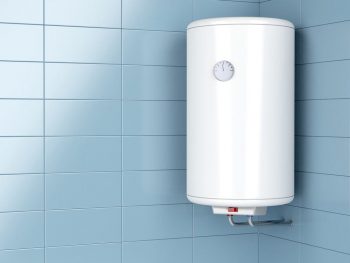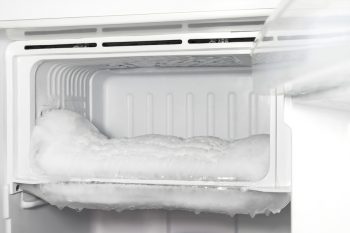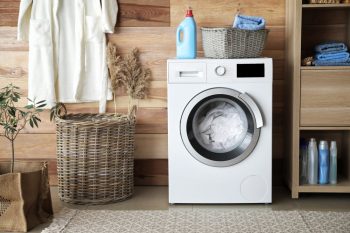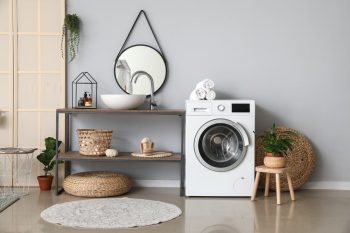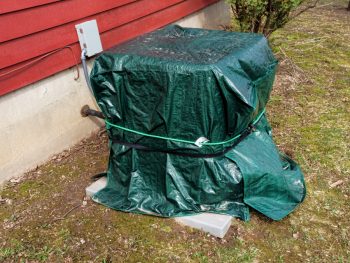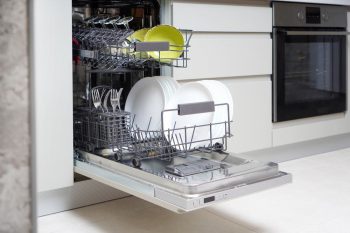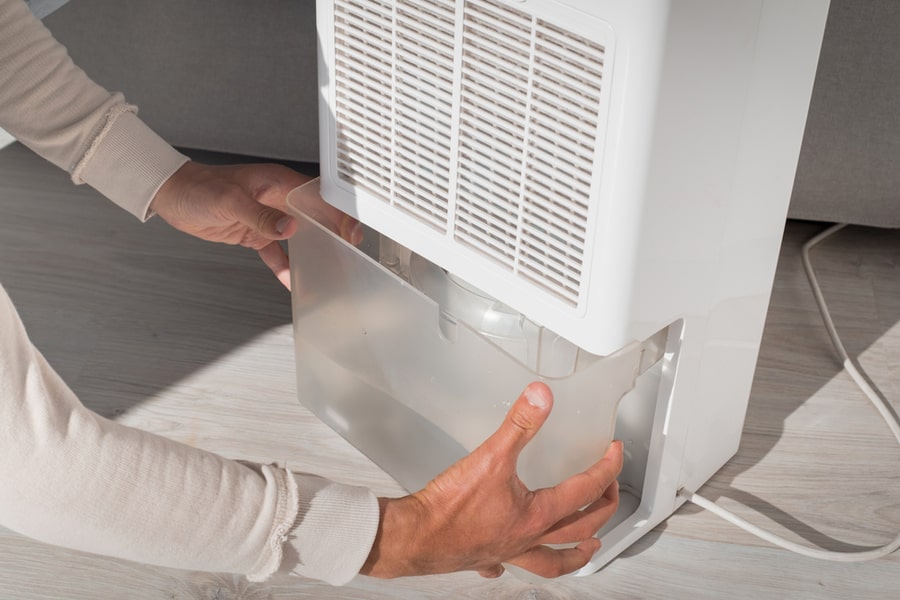
Dehumidifier is a common appliance in many homes that reduces humidity and improves air quality.
The water collected in the dehumidifier is known as ”Condensate Water”. Many homeowners wonder if drinking condensate water from the dehumidifier is safe.
The short answer is ‘NO.’ This is because the condensate water from a dehumidifier contains traces of harmful contaminants and is unsuitable for drinking.
It can be downright dangerous. Not only does dehumidifier water contain pollutants and microorganisms that can lead to serious illness, but it also contains hazardous chemicals that can cause permanent damage to your organs.
For these reasons, water collected in the dehumidifier container is unsafe. However, you can use it in other ways, such as cleaning and washing.
Here are the key takeaways from the article:
- Avoid drinking water from a dehumidifier, as it is unsafe and not recommended.
- Dehumidifier water contains harmful contaminants, microorganisms, and hazardous chemicals from the air and appliance.
- Consuming contaminated water can lead to various acute and chronic health issues, such as gastrointestinal distress and other diseases.
- Boiling, reverse osmosis, distillation, and filtration process can purify dehumidifier water, making it drinkable.
- Exercise caution when using chemical treatment, as over-treatment with chemicals can cause further health problems.
- It is recommended to utilize dehumidifier water for other purposes, such as cleaning, washing, or flushing toilets, and to rely on safe drinking water sources.
Keeping the above points in mind can help ensure your health and safety.
This post will explore why you should not drink water collected from a dehumidifier. From potential health hazards to the presence of harmful contaminants, the risks associated with consuming this water far outweigh any potential benefits.
So, if you are considering drinking water from your dehumidifier, the answer is a resounding No.
Keep reading to know why this is not a safe or advisable practice.
What Makes Dehumidifier Water Unsafe
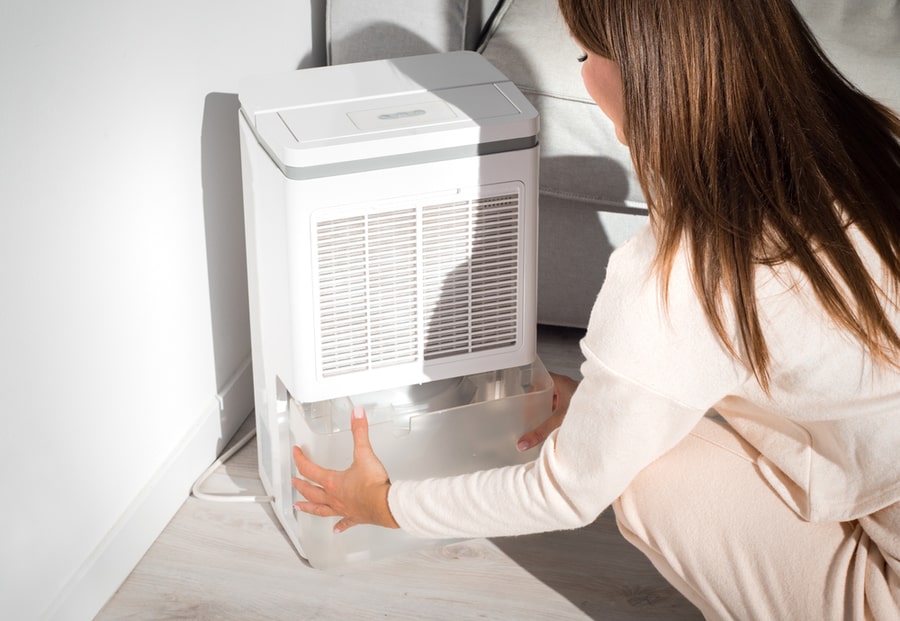
Let us explain the science behind the working of a dehumidifier and why it is unsafe to drink dehumidifier water. A dehumidifier works by removing excess moisture from the air in a room.
It works on the refrigeration principle, drawing in warm air, cooling it, and passing it over a condensing coil.
The cooling process causes the moisture to condense into water droplets, which are then collected and stored in a container. This water, known as condensate water, is what you are warned not to drink.
Drinking water from a dehumidifier can pose serious health hazards due to the presence of harmful contaminants, microorganisms, and bacteria that are present in the air. These contaminants can come from various sources, including building materials, household products, and the outside environment.
In most cases, the dehumidifier itself contributes to the contamination of the water. For example, the condensate water comes in contact with the internal parts of the dehumidifier, such as the fan blades, drainpipes, and condensing coils, which contain bacteria, mold, and other harmful substances.
Additionally, if the water collection container is not properly cleaned and maintained regularly, it can lead to bacteria and other harmful substances buildup over time.
When you drink water from a dehumidifier, you are ingesting these harmful substances and potentially putting your health at risk.
So, using this water for other purposes, such as washing and cleaning, is always recommended, but never for drinking or cooking.
Health Hazards Associated With Drinking Dehumidifier Water
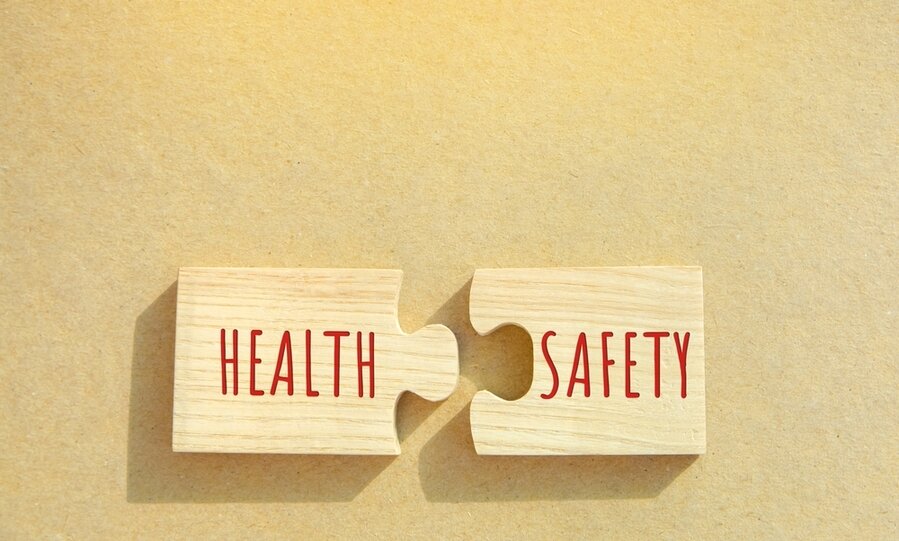
Drinking dehumidifier water can have serious health consequences as it contains harmful contaminants, bacteria, and hazardous chemicals.
Some of the health hazards associated with drinking dehumidifier water include the following:
- Bacterial Infection: The water in the dehumidifier contains harmful bacteria, which can cause serious illness and infections if ingested.
- Mold Exposure: The water in a dehumidifier can also contain mold spores and other types of spores, which can cause respiratory problems, allergies, and other health issues when inhaled.
- Gastrointestinal Problems: Drinking contaminated water from a dehumidifier can cause serious digestive problems such as vomiting, diarrhea, and abdominal cramps.
- Heavy Metal Toxicity: Dehumidifiers contain heavy metals, such as lead, mercury, and arsenic. These metals can have serious long-term effects on your health if consumed.
- Chemical Poisoning: The water in a dehumidifier can also contain chemicals, such as cleaning agents, which can cause serious health problems if ingested.
Making Dehumidifier Water Drinkable
Dehumidifier water should not be consumed as it is, as it contains impurities, bacteria, and other harmful substances.
If you need to make it drinkable, there are a few methods you can use, including:
1. Boiling
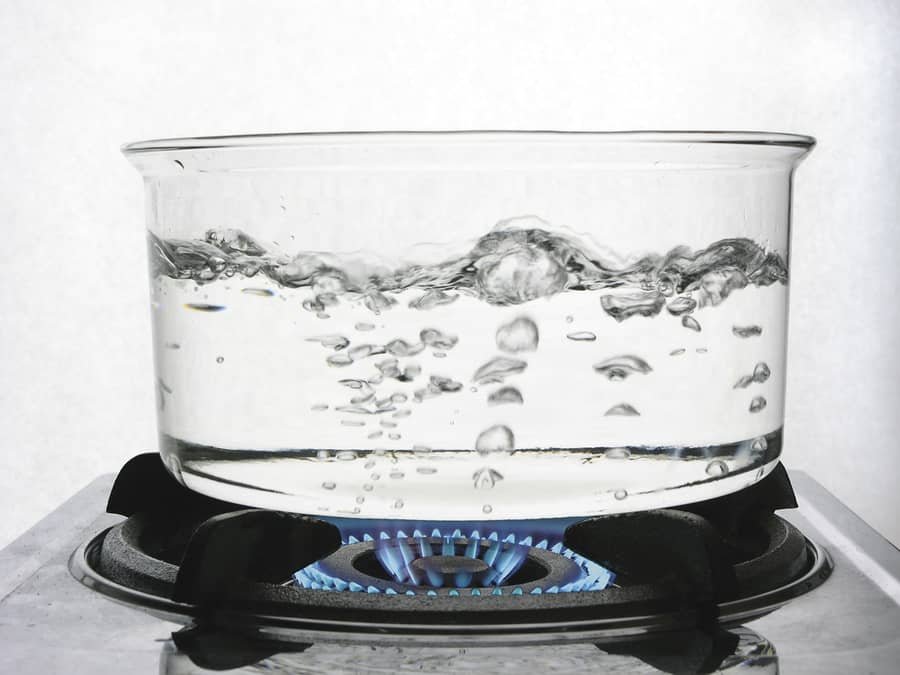
Boiling is one of the simplest methods to make dehumidifier water drinkable. But first, you need to heat the water to its boiling point (100°C or 212°F) for at least one minute.
After boiling the water, allow it to cool to a safe temperature before drinking it. This method kills harmful microorganisms and bacteria in the water, making it safe to drink.
Keep in mind that boiled water may still contain some traces of contaminants.
2. Reverse Osmosis
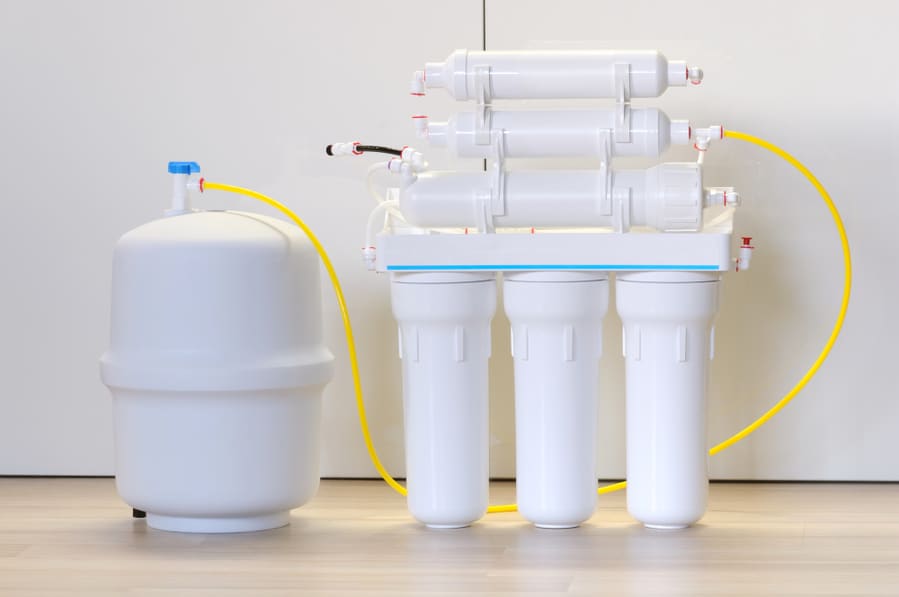
Reverse osmosis (RO) is a water purification process that removes impurities from water by forcing it through a semi-permeable membrane.
The membrane allows water molecules to pass through but blocks large contaminants, such as bacteria and minerals, from passing through.
3. Distillation Process
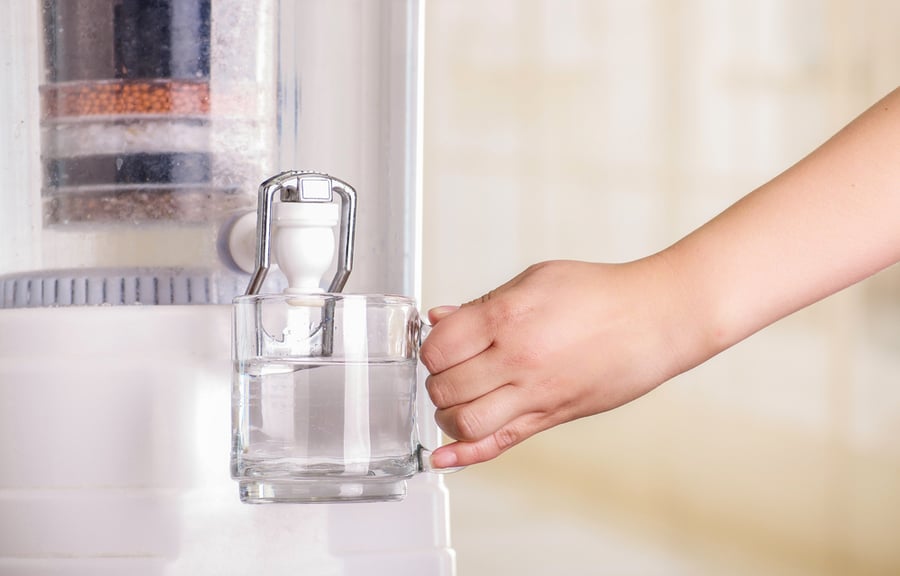
Distillation is a process that removes impurities from water by boiling it and then condensing the steam into a separate container.
During the boiling process, you can eliminate impurities and contaminants by letting pure water vapors rise and condense into a separate container, resulting in drinking water free of impurities.
4. Chemical Treatment
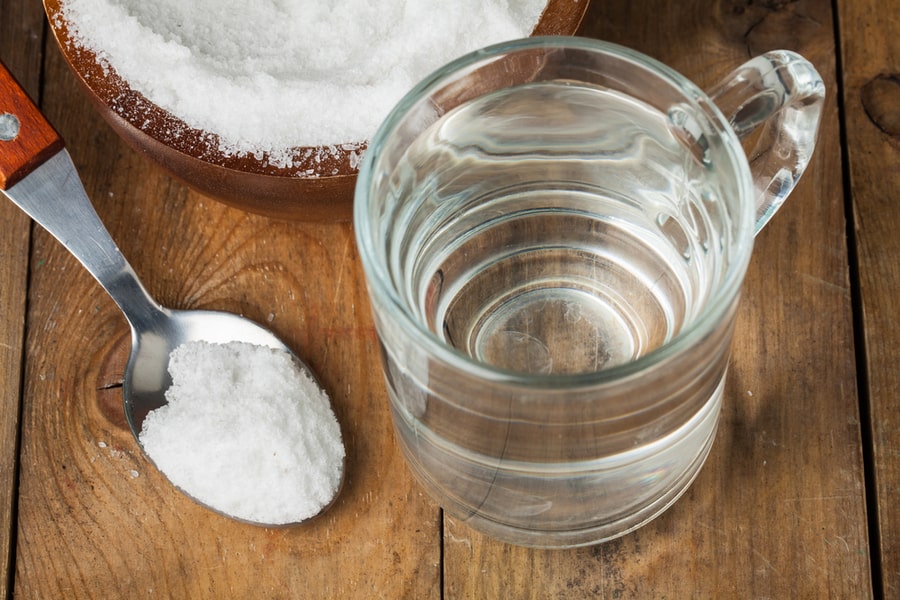
Chemical treatment is another method that you can use to purify dehumidifier water. This process involves adding chemicals, such as chlorine or iodine, to the water to kill harmful bacteria.
However, use this method cautiously, as over-treatment with chemicals can form harmful by-products.
If you are unsure how to use chemical treatment methods, it is best to avoid them, as improper use can lead to other health risks.
5. Filtration System
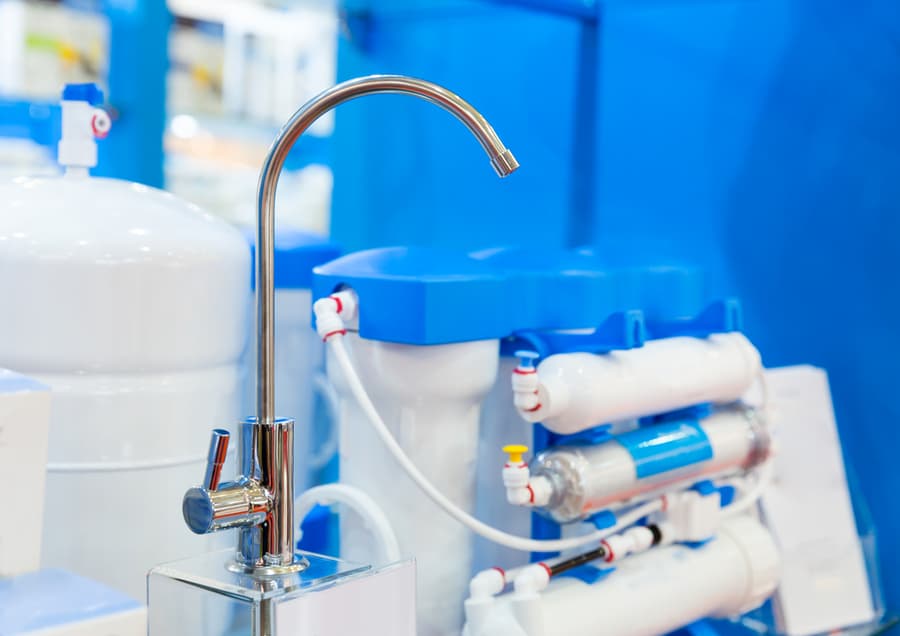
A filtration system, such as a ceramic filter, uses a physical barrier to remove impurities from water.
The filter traps contaminants, such as bacteria and minerals, within the filter’s porous structure, allowing only clean water to pass through.
A filtration system can effectively remove impurities from the dehumidifier water and make it safe to drink.
While dehumidifier water is unsafe to drink directly, it can be made drinkable through methods such as boiling, reverse osmosis, distillation, filtration, or chemical treatment.
However, safe and disinfected drinking from a reputable source is always recommended.
It’s important to note that dehumidifier water should not be relied upon as a long-term source of drinking water, as it may contain substances that could be harmful if consumed over a prolonged period.
Other Uses of Dehumidifier Water
There are several alternative ways to use dehumidifier water, other than drinking it, that can be both practical and environmentally friendly:
- Watering Plants: You can water your indoor and outdoor plants with dehumidifier water, as it contains some excess moisture and impurities that plants love.
- Cleaning: You can use dehumidifier water to clean surfaces such as windows and mirrors, as it does not leave streaks or residue like tap water.
- Laundry: You can use dehumidifier water as a fabric softener in your laundry wash cycle.
- Car Washing: You can wash your car and fill the windshield washer fluid reservoir with dehumidifier water.
- Ironing: You can use dehumidifier water as a steam source when ironing clothes to reduce wrinkles and freshen up the fabric.
- Flushing Toilets: You can also use dehumidifier water to flush toilets, as it is a safe and effective alternative to tap water.
- Mopping: You can use dehumidifier water to mop the floors, as it helps to remove dirt and grime more effectively.
Conclusion
In conclusion, the water from the dehumidifier may seem like a convenient water source, but it is unsafe for drinking. In addition, harmful contaminants and hazardous chemicals can cause serious health issues.
Therefore, it is not recommended to drink dehumidifier water. Instead, consider using the water for other purposes, such as cleaning, watering plants, or flushing toilets.
You can treat dehumidifier water to make it safe for drinking by boiling, filtering, and other methods. However, it is always best to rely on safe and tested water sources to ensure the health and well-being of you and your loved ones.
Frequently Asked Questions
What if I Drink Water From My Dehumidifier?
If you have ingested dehumidifier water, contact your doctor immediately and seek medical advice.
Is It Safe To Use Treated Dehumidifier Water for Drinking?
If you filter and treat the water, it may be safe for drinking.
However, it is not advisable to use dehumidifier water as a long-term source of drinking water. It is always best to rely on safe and tested drinking water sources.
Is Dehumidifier Water Safe for Plants?
Yes, you can use dehumidifier water for watering plants if it does not contain high levels of minerals that could harm their growth.
Therefore, It is always recommended to assess the quality and composition of the water before using it on plants.
Is Dehumidifier Water Safe for Animals?
No, dehumidifier water is not safe for animals to drink. It may contain impurities, bacteria, mold, and other contaminants that can harm their health.
Can I Use Dehumidifier Water for the Aquarium?
It is generally not recommended to use dehumidifier water for aquariums.

